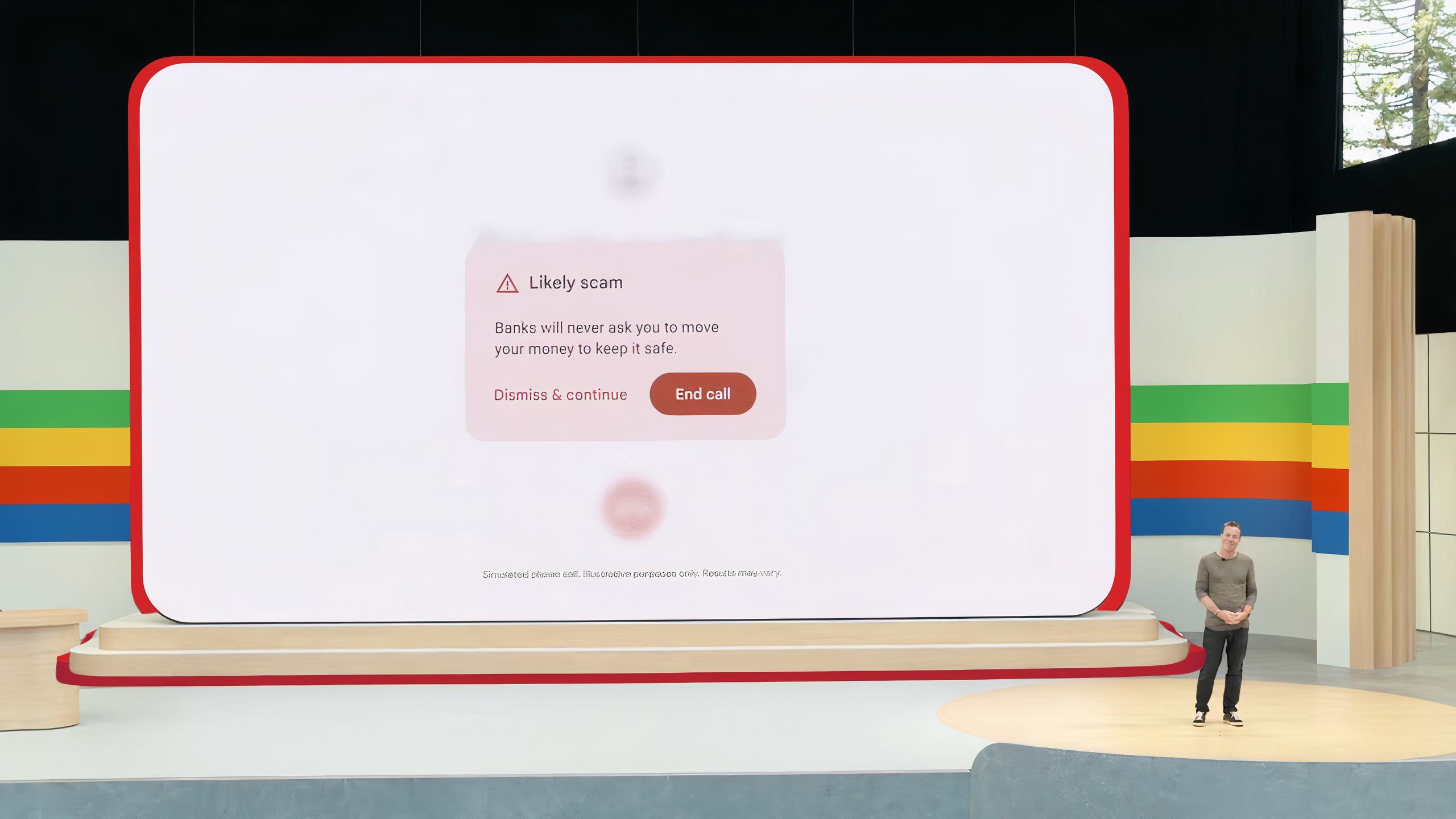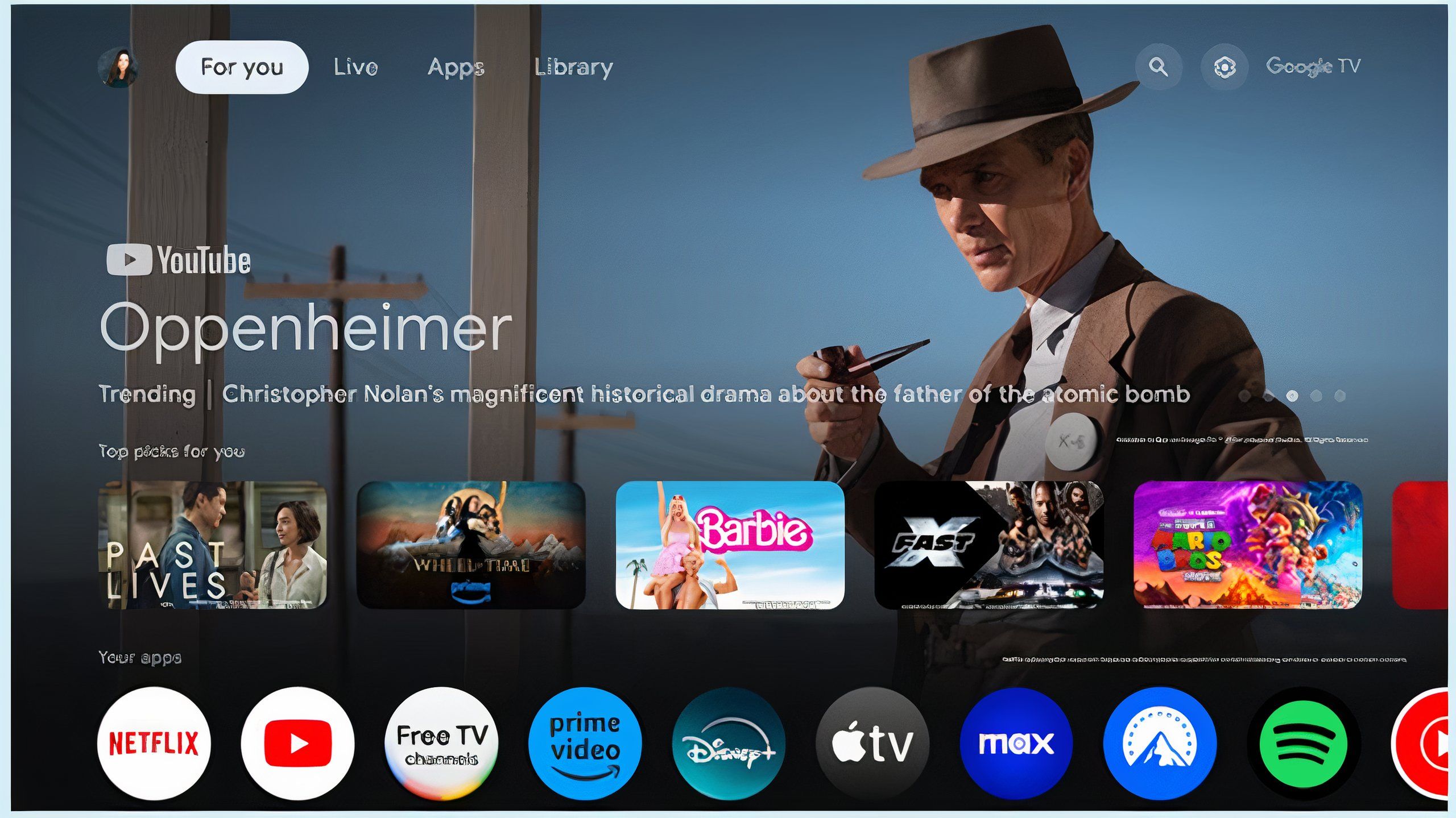Key Takeaways
- Gemini AI will enhance user recommendations on Google TV.
- Personalized descriptions of titles will be offered to viewers.
- Google is improving design, interface, and accessibility on its TV platform.
While mentions of Android TV and entertainment were curiously absent from Google I/O yesterday, it doesn’t mean the company isn’t working on multiple fronts to advance its technologies. Today, Google announced that it’s bringing the Android 14 platform to TVs in the hopes of improving performance and accessibility. And of course, generative AI will be there too.
AI in Android TV
Gemini is coming
Google/ Pocket-lint
While the Gemini rollout is still in the early stages, Google TV users can expect to see some changes with how they search and learn about new content, a feature I was hoping Google’s generative AI could help with when watching TV. Initially at least, Google says AI will help with user recommendations, and while I’m not naive to promises made by big tech companies, I’m very hopeful AI can deliver far better ideas than algorithms than what Netflix comes up with (why does my line of “movies from the 90s” include films released last year, I ask). There aren’t a lot of details about how it’ll work or just how successful the application is (and Google referred to “AI” and not “Gemini” in the video it released), but chatting with Gemini yesterday about film recommendations I was very encouraged by the AI’s ability to “remember” and note key details and specific requests.

Gemini AI is Google’s new secret weapon against spam calls
Pixel phones are morphing into the bane of every phone scammers’ existence.
Google also plans to offer personalized descriptions for titles, a feature that sounds quite promising. The idea, it seems to me, is that Google will provide descriptions of films in a way that better resonates with each individual viewer. I know from experience that the short summaries available on any number of titles aren’t necessarily representative, or free of spoilers, so generative AI should be able to help a lot. Google also says AI will help fill in summaries that may be missing, and it will be able to translate descriptions for viewers as well.
Design and performances
Aesthetics and accessibility
Google is continuing to improve the design and interface of its TV platform. Recently, it improved the apps row, implementing smaller, round icons to allow for more to be visible on screen, while also allowing users to customize the order.
Notably, Google has worked to create a more convenient “continue watching” section that populates all the titles across apps that you are in the middle of enjoying. So instead of jumping from app to app to play the next episode, you can pick right off from the home screen. A picture-in-picture option will also be available for compatible apps.
Google is working on creating a faster platform, reducing the memory footprint of apps and implementing better power-saving features. Chromecast will also allow for a fast pairing of headphones, so you can quickly connect your listening device to the TV for a private experience.
Google is also improving accessibility features, including offering color correction that includes presets for common deficiencies, as well as support for switch access with virtual D-pad and bold text options.
It certainly doesn’t seem like Android TV or Chromecast is at the top of the to do list for Google, but at least it’s getting a bit of attention with some interesting features on the way.
Trending Products

Cooler Master MasterBox Q300L Micro-ATX Tower with Magnetic Design Dust Filter, Transparent Acrylic Side Panel…

ASUS TUF Gaming GT301 ZAKU II Edition ATX mid-Tower Compact case with Tempered Glass Side Panel, Honeycomb Front Panel…

ASUS TUF Gaming GT501 Mid-Tower Computer Case for up to EATX Motherboards with USB 3.0 Front Panel Cases GT501/GRY/WITH…

be quiet! Pure Base 500DX Black, Mid Tower ATX case, ARGB, 3 pre-installed Pure Wings 2, BGW37, tempered glass window

ASUS ROG Strix Helios GX601 White Edition RGB Mid-Tower Computer Case for ATX/EATX Motherboards with tempered glass…











